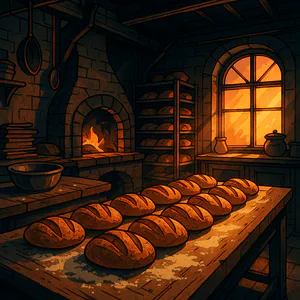Generate bakery names
More Place Name Generators- <% result.name %>
Discover all Story Shack apps
Baking Up Your Brand
To choose a bakery name, consider:
- Which products define you—bread, pastries, cakes?
- Do you want rustic or modern charm?
- Should it include your surname or location?
- Will it look good on packaging?
- Is it easy to pronounce and remember?
Bakery Name FAQs
Answers for your bakery branding:
How are names generated?
They combine baking terms with cozy adjectives for inviting results.
Can I specify product?
Regenerate until a specialty appears; no direct filter yet.
Are names unique?
Each is a fresh combination; verify for trademarks before use.
How many names?
Unlimited—click to explore endless bakery ideas.
How copy or save?
Click to copy or click the heart icon to save favorites.
What are good bakery names?
There's thousands of random bakery names in this generator. Here are some samples to start:
- Healthy cakes
- Funny Face Bakery
- Greek Bakery
- Ladybird Bakery
- Bread & Hearth
- Fresh As Bakery
- Baking Company
- Flavourtown Bakery
- Bakers Gallery
- Bakes Cakery
About the creator
All idea generators and writing tools on The Story Shack are carefully crafted by storyteller and developer Martin Hooijmans. During the day I work on tech solutions. In my free hours I love diving into stories, be it reading, writing, gaming, roleplaying, you name it, I probably enjoy it. The Story Shack is my way of giving back to the global storytelling community. It's a huge creative outlet where I love bringing my ideas to life. Thanks for coming by, and if you enjoyed this tool, make sure you check out a few more!



















































